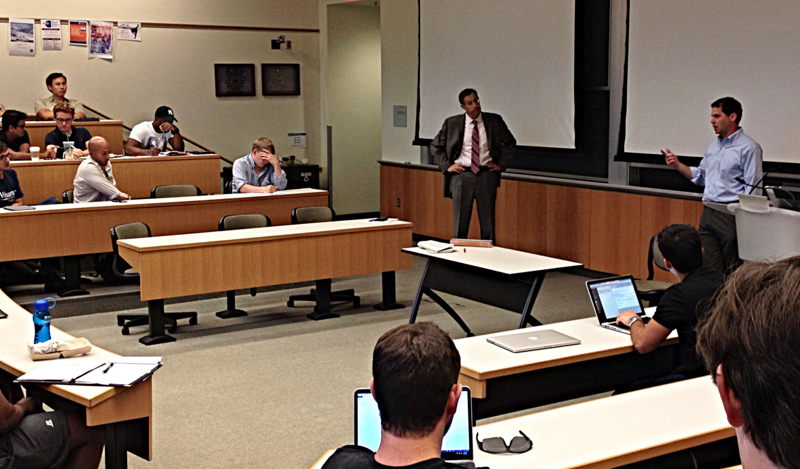The college entrepreneurship craze breeds a lot of quickly formulated startup ventures. Ask any business attorney and she might tell you something both obvious and often ignored: get it in writing.
Students from Drexel University and the University of Pennsylvania meet weekly as part of the Founders’ Club to discuss their business ideas and learn from guest speakers that are experienced in the entrepreneurship world.
The Founders’ Club is part of a sprawling network of resources for Philadelphia area college students looking at startup culture as a hedge against a nasty jobs climate, from cross-campus nvigor to a tech curious Campus Philly to affiliate, alumni and undergrad groups for nearly any flavor.
The Founders’ Club distinguishes itself by its regular programming of a practical nature. Recent guest speakers Richard Cohen and Robert Borghese, both attorneys of business law, one from Duane Morris and another in private practice, advised the club members on the all-important, if boring, operating agreement.
It’s the backbone of a new company, the key component in shaping a business’s financial and functional decision making. It is imperative that the agreement be tailored to the specific needs of each individual company.The operating agreement becomes even more crucial, as Cohen points out, when there is more then one owner of a company.
“Complications come when you have multiple members,” Cohen said. “If you have two or three members, how are you going to deal with things? What happens if one of you decides to become a consultant next week? What happens to the equity? What happens if you can’t agree on something? You’re going to have to deal with all of these things in the provisions of the operating agreement.”
Borghese, who teaches classes on law and entrepreneurship at Wharton, outlined six factors that need to be considered before and during the drafting of an operating agreement.
- What are the initial capital contributions among all partners? Capital can take the form of cash, property, both tangible and intangible, as well as services. It is extremely important to have a record of who contributed what on day one.
- Allocation of rights and responsibilities. When dealing with a startup there should be an “all hands on deck” mentality. That being said, specific functional responsibilities should be delegated to specific people, and that should be outlined in the operating agreement.
- Who’s getting what equity? It’s not always going to be a one for one situation when it comes to assessing initial contributions and return equity. You need to have a conversation with your partners and really put a value on the various contributions that did not come in the form of cash.
- How do we manage? You need to decide what the board of managers looks like and how much say they are going to have in matters. You also need to make decisions about the minority holders and what rights they will or will not have.
- Handling cash flow. When there is enough money to start giving out salaries, how much is everybody going to get? Different people are going to have different circumstances. If one of your partners is married with kids and you’re single you may need to pay them a higher salary then you pay yourself because they have a higher cost of living, said Cohen. You have to take your partners as you find them and treat them accordingly.
- The four D’s. Death, disability, disagreement and divorce. All four of these occurrences are possible factors within your company and the only way to get out ahead of them is to outline how you’ll handle them from the get go.
Both attorneys remarked that with the proper operating agreement and dedicated partners, a startup business is on the right path to success.







